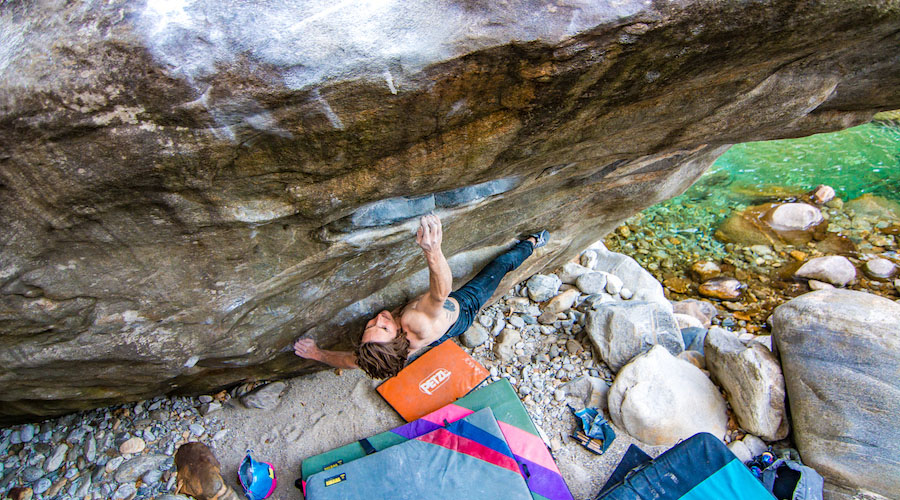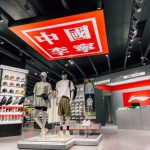By Eric Smith
<span style="color: #a1a1a1;">Like many brand leaders, Bill Sinoff has been thinking for months about how the coronavirus outbreak would upend the spring sales cycle.
As the general manager of LA-based climbing shoe manufacturer Evolv, Sinoff had insight into how the U.S. outdoor industry might be impacted because of what was happening in Europe as early as February.
Evolv’s parent company, Oberalp Group, whose portfolio includes outdoor equipment makers Salewa, Dynafit, Wild Country and Pomoca, is based in Bolzano, Italy, near the European epicenter of the outbreak. That gave Sinoff and his North American colleagues insight into how the pandemic would eventually ravage this side of the pond.
So even before shelter-in-place orders were enacted, travel was all but shut down and retail doors were closed throughout the U.S., Sinoff began planning for his company to pivot its spring sell-in process to a virtual one. The brand is about to roll out a suite of digital selling tools during this unprecedented time—and he is confident they will succeed.
After all, businesses will soon reopen and Evolv is hopeful that its retail partners will have all the information they need about the brand’s 2021 line.
“The single thing we’re doing is trying to provide tools to enable businesses to think about having continuity through this as we get to the other side,” Sinoff said.
The digital sell-in process involves the brand offering each of its retail partners a digital opportunity to view the company’s new line of products through private, secure online connections. The virtual plan adheres to social distancing measures yet still permits this essential component of retail business—just with tools like Zoom instead of face-to-face meetings.
In other words, traditional sell-in components in a nontraditional format.
“The process doesn’t change. The names and the faces don’t change,” Sinoff said. “The only things that change are the tools. It’s no different than 25 years ago when people would call on a landline during working hours to schedule an appointment. Now they’re scheduling appointments via text or email or mobile phone. It’s just an evolution of the toolkits. The challenge comes down to people’s level of comfort in terms of adapting quickly to the tools.”
Sinoff said the spring sell-in period with retailers has some built-in advantages. It will be more cost-effective and easier to align the schedules of everyone involved—from product manager to brand leader to sales rep to merchandiser.
“You could never get all the people in the same place at the same time except in rare instances,” Sinoff said. “It takes an insane amount of time and it’s expensive. Plus a huge amount of natural resources are consumed. The new model is a fraction of what the traditional model is in terms of consumption.”
Thanks to the cost savings associated with the digital sell-in process, Sinoff hopes that Evolv’s channel partners will be able to spend that money elsewhere. In other words, if a company can slash its travel budget by 50 percent, perhaps they can appropriate those funds to marketing, product development, corporate social responsibility or otherwise reinvest in the business.
There’s also an eco-friendly element to this new way of doing business. “There’s certainly huge value on the environmental side in terms of not having to travel as much, of not pumping gas into a car or jet fuel into a plane,” Sinoff said.
There are, of course, some things that get lost in the new digital process, Sinoff admitted. The intimacy of an in-person sales meeting. Everyone dissecting a product while in the same room. Celebrating with an actual, not virtual, happy hour afterward.
“Some things you just can’t duplicate from a face-to-face meeting,” he said. “That’s maybe less about the business side and more just around the fact that humans are inherently social beings and we need human-to-human proximity at some level to be comfortable.”
But technology has brought some intimacy to self-quarantined communication, including more teleconferencing calls where you can’t help but look directly in someone’s eyes—albeit through a screen.
Sinoff also thinks this new normal for the sell-in process, although temporary, could lead to some lasting changes in the sales process once quarantining has ended and traditional business practices resume.
“The more businesses that can pivot to forward-thinking digital solutions, the better it is for everybody,” he said. “If it’s just one or two companies, probably nothing’s going to change over time. But if everybody is embracing it, then we can make some changes. What we’re trying to do is get businesses to understand that there is a path through this. There’s a light at the end of the tunnel, which is not years away but months away. So we’re asking, ‘How can we continue to work together through the lens of the immediate craziness?’”
Photo courtesy Evolv
















